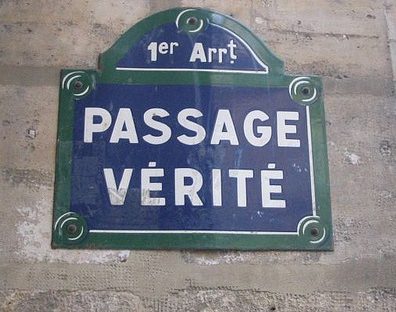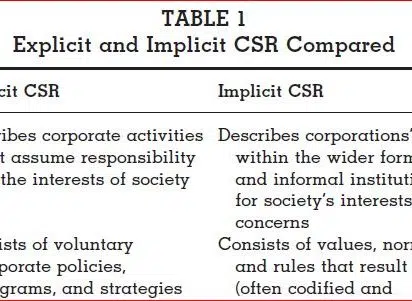On Tuesday 4 September 2018, Nicolas Hulot definitively left the French Ministry for the Ecological and Inclusive Transition. In his speech on that occasion, his overt emotion, and the tears he shed, raised some pessimistic comments about the possibility of achieving, in the shortest possible time, the ambitious but necessary goals for environmental protection (1). Nicolas Hulot’s previous statement on 28 August – the day he abruptly announced his decision on a French radio – presumably fueled his emotion and pessimism. Quite interestingly, his dramatic statement included the following sentence:
“[…] On such an important issue, I have resigned myself every day [to accepting the situation], to accepting to take small steps every day, whereas the overall situation, at a time when the planet is becoming an oven, requires unity and consensus, and a change of scale, a change of scope and a change of paradigm.” (2)
The sense of the resignation mentioned here by Nicolas Hulot is the subject of this post.
1.
Needless to say, the “important issue” emphasized in the above quotation is the ecological one. To address this issue, Nicolas Hulot explained in the interview given on 28 August 2018 that the socio-political conditions had to be favourable. However, he observed with regret that, “on the desk of a Prime Minister, there are social requirements, humanitarian requirements [….], which, legitimately, always relegate the long-term challenges (challenges that catch society unawares) to the sidelines.” To live up to the challenge, a new “paradigm,” a “national union,” a commitment by “political groups” to “rise above the fray to join forces on essential topics” – terms used by Nicolas Hulot himself – should have emerged. But it was not the case. The resignation to which he refers in the above excerpt – “I have resigned myself every day [to accepting the situation]” – seems to correspond to the following definition, taken from the French CNRTL dictionary: “The attitude of a person who accepts, without revolting, a painful, unpleasant thing, which he considers inevitable.” Christian Godin’s definition: “The attitude of a person who submits his being and will to a superior force (destiny, divinity, political power)” (3), refers to the “requirements” that Nicolas Hulot underlined in his declarations, while emphasizing his powerlessness to control the course of events – a definition of fatalism (4). “Hulot part parce que nous allons mourir et il se résigne à l’idée qu’il ne l’empêchera pas” (“Hulot leaves because we are going to die and he resigns himself to the idea that he will not prevent it”) was the headline of an article written by Claude Askolovitch in Slate on 29 August 2018: he thus appropriately reminds us of the conceptual link between resignation and fatalism.
2.
Askolovitch also calls Hulot “a wise man.” This suggests another conception of resignation, which is developed in a version of the Stoic philosophy. The image of the archer trying to reach his target – an image based on a distinction between target, or purpose, and goal – allows us to understand it. The difference between target and goal refers to the distinction between the result of the action and the action itself. The archer’s purpose is to reach his target, but the achievement of this object can be thwarted by events that are not within his control. The archer’s goal is to do everything in his power – “power” including his skills and talent – in order to reach the target; therefore, anything that can defeat this goal can only come from him, not from external contingencies. A. A. Long summarizes this distinction:
“Once the arrow is on its way various contingencies might interfere with its flight and prevent it from hitting the mark; the archer cannot be held responsible for these but he can do everything in his power to ensure success before dispatching the arrow.” (5)
Assuming that he does everything that depends on him to achieve the target, he is, in Jacques Brunschwig’s words, “superiorly indifferent to the success or failure of his undertakings” (6). However, this superior indifference can be interpreted as resignation. Thus, the Stoic who seeks to win a war with such an inner perfection (7) may be suspected of “not being fundamentally interested in winning it, of resigning himself in advance to losing it if necessary, and perhaps of contributing somewhat to this defeat by this very resignation” (8).
3.
However, the resignation to which Nicolas Hulot refers in his speech is certainly not that of the Stoic. To be sure, it stems from the powerlessness he felt in exercising the political role assigned to him, from the “policy of small steps” to which he was forced to submit, and, more generally, from the world order (9). But this world order is not immutable. Moreover, it is more a “state” than an “order.” Furthermore, it is doubtful that Nicolas Hulot’s inner attitude had anything to do with indifference, since concern for nature is, it can be assumed, a part of himself. Finally, the way he presented his resignation a posteriori – “I hope that my resignation will not be in vain, that it will cause a burst of conscience in society. By the way, it seems to me that it causes such a burst. Just for that, it’s worth it” (10) – indicates that it was part of his own action to preserve the natural environment. Here the word “action” should be understood as a “plan” – an “action plan” –, not as an isolated act. The idea of an action plan takes us away from the image of the archer. This idea refers rather to the cooperation and collective responsibility which Nicolas Hulot emphasizes. As for his resignation as Minister, it can be understood as an element contributing to the coherence of the “plan.” Using again the archer metaphor, it means that Nicolas Hulot is still trying to reach his target despite external obstacles. He does not accept the current state of the world. Alain Anquetil (1) In particular during the “Le Grand Soir” program on LCI on 4 September 4 2018. See also « Les larmes de Nicolas Hulot lors de la passation de pouvoir avec François de Rugy,” HuffPost, 4 September 2018. (2) See “Nicolas Hulot démissionne : l’intégralité de l’entretien,” 28 August 2018. (3) C. Godin, Dictionnaire de philosophie, Paris, Fayard / Editions du Temps, 2004. (4) I employ here the exact wording of A. Lalande, Vocabulaire technique et critique de la philosophie, Paris, PUF, 1996: “Doctrine according to which human will and intelligence are powerless to direct the course of events; so that everyone’s destiny is fixed in advance, whatever they do.” (5) A. A. Long, “Carneades and the Stoic telos,” Phronesis, 12(1), 1967, pp. 59-90. (6) J. Brunschwig, “Les Stoïciens,” in Philosophie grecque, Paris, PUF, 1997. (7) “What [the archer] is looking for, his telos [in contrast to the purpose, the skopos], is the very perfection with which he aims at this target, even if he is not to reach it.” (J. Brunschwig, op. cit.) (8) Ibid. (9) “[…] Efforts are being made to maintain, or even revive, a market economic model that is the cause of all [ecological] disorders.” (Nicolas Hulot, see note 2 above.) (10) “Nicolas Hulot : ‘Que ma démission ne soit pas vaine,’” Europe 1, 3 September 2018.




